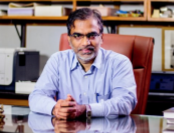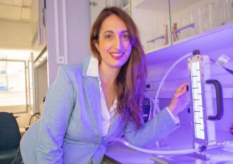Description
Understanding water quality is crucial in the face of numerous challenges, including climate change, anthropogenic effects on the environment, new-age microbes and chemicals, poor awareness on impact of water on health and inadequate or improper water purification. The objective of this course is to impart knowledge on fundamentals of water quality parameters and standards, theory of water quality measurements, use of appropriate methods and equipment, water quality surveys, and behavioral issues relating to water quality along with hands on measurements in the field with appropriate equipment, leading to building water professionals of tomorrow with a focus on innovation and service.
The course is divided into two parts: theory and practice. The theory classes may be delivered online or offline. The practical component will be completely offline and will involve training and sample collection for the analysis of water across different geographies, generating valuable data on water quality.
Participants will engage in four week-long interactions with citizens to assess their water quality, conducting measurements that contribute to the creation of ‘People’s Water Data’, along with surveys on water quality, to understand cultural, economic, and behavioural aspects affecting water quality. The data collected will be available online for future analysis and evaluation. Water quality kits will be provided to these students and they will be trained in conducting independent analysis, under the supervision of trainers. The data collected will be evaluated independently for their reliability. While this course is designed for anyone interested in the water sector, a background in science may be helpful.
The course will be delivered through lecture modules, assignments, discussions, practical exercises and field measurements over a four-month period. Evaluation will assess the comprehension of theory and the application of understanding through measurements, with assignments and analysis forming part of the evaluation process. Six institutions have collaborated to create this course and the modules will be delivered by eminent water experts and scientists.
Understanding the concepts, data and field realities is expected to kindle an entrepreneurial interest in them.
By the end of the course the learners will be able to:
Identify the major contaminants in drinking water and their impact on health.
Understand water quality (WQ) standards across the world and in India.
Learn ways of measuring major WQ parameters.
Design a field measurement of WQ.
Overlap the data with geospatial information.
Learn the concept of hydro informatics.
Measure WQ parameters in the field.
Develop a survey and incorporate the data on online platforms.
Model the data generated and assess their use.
Profile of the Instructor(s)

Prof. Thalappil Pradeep is an Institute Professor at IITM. He has trained over 300 graduate, masters, and postdoctoral students to do original research and thousands of others in different branches of science and engineering through classroom teaching. He is an author of 7 books, 550 papers, and 120 patents. He has built seven start-up companies. His technologies on clean water have reached 13 million people. He is a fellow of all the science and engineering academies of India, The World Academy of Sciences, the African Academy of Sciences, and the American Association for the Advancement of Science. He has received prestigious recognitions such as the Padma Shri, VinFuture Prize, and Eni Award, among others.

Prof. Hadas Mamamne is a head of the Environmental Engineering Program and the Water-Technology Laboratory at the School of Mechanical Engineering, Tel Aviv University, Israel. She specializes in advanced water purification and disinfection. Committed to sustainability, she pioneers point-of-use technologies to provide safe drinking water in low-income areas. As a visiting faculty at IIT Madras, she actively contributes to the development of water treatment technologies. Embracing off-grid solutions, her team explores UV-LED technologies as an innovative alternative to mercury lamps. Furthermore, she conducts smartphone-operated surveys to assess water quality in rural Indian communities.

Prof. Ram Fishman is a Professor of Development Economics at the Department of Public Policy, Tel Aviv University, and directs the Nitsan lab for sustainable development. His focus lies in bridging Israeli innovation with low-income users in developing countries. Specializing in sustainable agriculture, water scarcity, and climate change, he employs field work, experiments, and data analysis. Formerly an assistant professor at George Washington University and a post-doctoral fellow at Harvard Kennedy School, Ram holds a Ph.D. in Sustainable Development from Columbia University. His research interests span Sustainable Development, Food, Water, Energy, Climate Change, Agriculture, and Technology Adoption.

Prof. Ligy Philip, IIT Madras Chair Professor, excels in Civil Engineering. A Fellow of the National Academy of Engineers (FNAE) and the Royal Society of Chemistry (FRSC), she holds a Ph.D. from IIT Kanpur. Her research spans industrial effluent treatment, bioremediation, innovative drinking water processes, and sustainable waste management. Recognized globally, her tech solutions benefit industries and NGOs. As a pollution control consultant, she aids global sanitation projects with organizations like the Bill and Melinda Gates Foundation. Serving on expert committees for the National Green Tribunal and pollution boards, Prof. Philip executes socially impactful projects, implementing sustainable water and waste management in five villages.

Dr. G. Velmurugan, a Scientist at KMCH Research Foundation, Coimbatore, India, holds a Ph.D. from Madurai Kamaraj University and underwent training at Cologne University (Germany), IIT Madras, & University of Florida (USA). Specializing in the interaction between chemicals and microbes in diverse environments, especially water, he researches into its implications on ecosystems and human health. Recognized with the Young Investigator award from the Association of Microbiologists of India and the International Society for Microbial Ecology, Dr. Velmurugan’s perspective revolves around microbiota. His team aims to leverage microbiota for addressing global challenges, including water pollution, climate change, and human diseases.
Eligibility & Fees
Participants must have background in science at some stage in their academic preparation. Final year B.E./B.Tech., M.E./M.Tech, M.Sc./M.A., Ph.D. and equivalent students may join.
Exempt for IITM/TAU students
a. Registration for theory: Rs 590 (Rs 500 + 18% GST)
Rs 500 – may be refundable after satisfactory completion and certification. Registrations are open now.
b. Registration for practical: Rs 1180 ( Rs 1000 + 18% GST)
Rs.1000 – may be refundable after satisfactory completion and certification.
i. This registration will open in mid-Feb after assessing their interest to take up the practical course and knowing their location.
ii. Successful completion of the theory class is mandatory for students opting for the practical.
Intended Audience
Senior undergraduate, postgraduate students, research scholars, water professionals, laboratory trainees, and analysts.
Certification
Attendance, assignment completion and evaluation are the required criteria for certification.









mahapatra.iitm@gmail.com (verified owner) –
Great Initiative!! We do require these type of theoretical as well as experimental courses for near future to establish the importance of highly important need of today’s requirement i.e. water. Hoping to get some good experience with the course with new insights. Thanks to the organisers.
Rahul kumar –
Being an experienced environmental professional, I can surely recommend this course. It covers basics of water quality that will help engineers, consultants, and scientists in understanding better in field applications
Ramya Dwivedi –
As this course’s coordinator, I want to use this platform to present the highlights of this course to students.
This hybrid format seamlessly blends theory and hands-on experience, providing a comprehensive understanding of water quality parameters and standards.
The course structure, divided into theory and practice, allows students to grasp the fundamentals through engaging online sessions and apply that knowledge in the field. The opportunity to collect and contribute to ‘People’s Water Data’ empowers one to make a real impact in understanding and improving water quality.
The modules are delivered by eminent water experts.
Highly recommended for anyone interested in water science, this course is a perfect blend of education, hands-on experience, and community impact.
Register and complete the course, and refund your fee.
Dr Shweta Vyas –
Water, being the essential need of living organisms which has to be of good quality and in pure form for biological processes. This course has been recommended to my students at University of Kota Rajasthan to understand the quality parameters of water and to get hands on training for analysis of water.
Dr. Moses Egor –
I highly recommend this course for graduate students, university lecturers, and technicians (especially from Africa) interested in water quality monitoring and purification research. The facilitators are seasoned scientists in the field of water research.
Sanjeev Kr Jha (verified owner) –
Great Initiative
Srinivas Chavali –
Great topic and programme
Lekha Soman (verified owner) –
Great initiative from the organizing team. This workshop helps in understanding the significance of water quality.